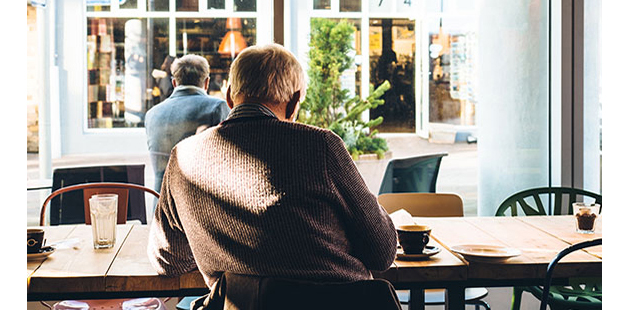 Older gay men’s concerns regarding ageing and aged-care settings are driven by their class and sexuality, according to new research from Swinburne University of Technology.
Older gay men’s concerns regarding ageing and aged-care settings are driven by their class and sexuality, according to new research from Swinburne University of Technology.
Fears regarding sexuality were found to be strongest amongst gay men who were considering entering aged-care settings. Their main concern was their sexuality would cause them to be ostracised.
“The fear of homophobia is not necessarily from the staff, the greater fear can be from other residents and their families,” says Swinburne Senior lecturer in sociology and history, Dr Peter Robinson. “There’s both resilience and vulnerability because of the era of when these men came out.”
Dr Robinson says of the generation of men facing the prospect of aged-care living after embracing their sexuality in a time of oppression. Men involved in the study spoke of their concerns regarding care workers and the possible effect of the heterosexist culture, in which opposite-sex relationships are seen as the norm. Some men expected to find homophobic residents, care workers or management in aged-care facilities.
Data from the study came from the interviews of 25 men aged 60 and older in Auckland, London, Manchester, Melbourne and New York.
Class and isolation
Other fears shared by older gay men were similar to their heterosexual counterparts, including more universal concerns regarding supported care, aged accommodation and social isolation.
Dr Robinson says that while anti-discrimination legislation is in place and has an important role, he would like to see training continue for staff at all levels in diversity appreciation and knowledge. Like heterosexual people, class was found to affect gay men’s experience and expectations of old age.
“Where I would like to see this more is in aged care facilities at all levels, not just at the higher socio-economic end, said Robinson. “I think this is happening, especially in suburbs of capital cities in Australia where there are active gay and lesbian elder community networks.”
Gay and lesbian patient care
Dr Robinson is currently working with Alfred Health to make patient care more LGBTIQ+ inclusive and says this is a changing area for healthcare and aged-care in Australia that he has been working in since 2009.
“HIV was seen as the most pressing issue in the gay community for a long time and now it seems there is more space to talk about other health issues for gays and lesbians,” said Robinson.
As a member of an Alfred Health working party, Dr Robinson is helping prepare for a conference in May 2017 for hospital staff from all levels in metropolitan Melbourne and rural and regional Victoria.
For more information, visit: www.swinburne.edu.au for details.
